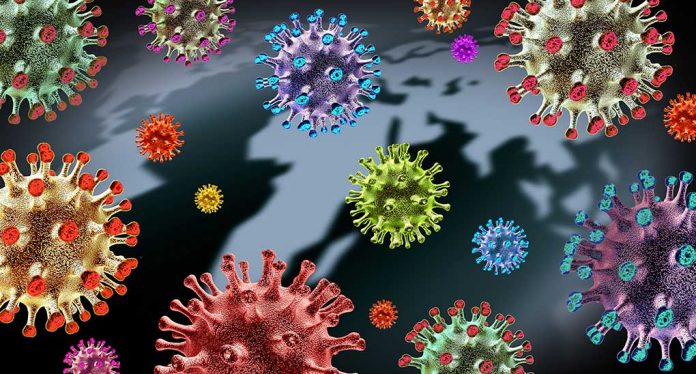
Fiji’s popular tourist destinations are now facing a deadly threat as dengue fever cases surge to record levels, forcing CDC to issue an urgent travel warning for visitors.
Key Takeaways
- The CDC has issued a travel advisory for Fiji due to an alarming spike in dengue fever cases, particularly in the Western and Central Divisions
- 2024 has been labeled the “worst year for dengue on record” by the World Mosquito Program, with climate change exacerbating the spread
- Travelers are strongly advised to use insect repellents, wear protective clothing, and stay in screened accommodations
- Approximately half the world’s population is now at risk for dengue fever, with an estimated 100-400 million infections occurring annually
- The surge in cases coincides with peak tourist season, significantly increasing the risk for travelers
Dengue Fever Outbreak Threatens Fiji’s Tourism
Fiji, long celebrated for its pristine beaches and lush landscapes, is currently grappling with a severe public health crisis that threatens both locals and tourists. The Centers for Disease Control and Prevention (CDC) has issued an urgent travel advisory due to a significant surge in dengue fever cases throughout the island nation. This mosquito-borne virus has been spreading at an alarming rate, particularly in the Western and Central Divisions, areas that include many popular tourist destinations. The timing couldn’t be worse as the current outbreak coincides with Fiji’s peak tourism season, putting thousands of international visitors at risk.
“About half the world’s population is now at risk for dengue with an expected 100-400 million infections occurring each year,” World Health Organization (WHO)
The current outbreak is especially concerning as public health officials report that case numbers are “above the expected [dengue] levels for the same period last year,” according to the WHO. This alarming increase has contributed to what the World Mosquito Program has now designated as the “worst year for dengue on record.” For travelers who have already booked trips to Fiji, this presents a serious dilemma as they must now weigh the risks of potential infection against their vacation plans. The situation underscores the vulnerability of popular tourist destinations to public health crises, particularly those accelerated by climate change.
Climate Change Amplifying Health Risks
Climate change has emerged as a significant factor in the current dengue outbreak, creating conditions that favor mosquito breeding and virus transmission. Erratic weather patterns and extreme drought-flood cycles have created ideal environments for mosquito populations to thrive across Fiji. The Fiji Government has explicitly warned that continued pollution and climate effects will further exacerbate the spread of dengue and other vector-borne illnesses in coming years. This environmental dimension adds complexity to the current health crisis, suggesting that such outbreaks may become more frequent and severe as global temperatures continue to rise.
“Spring and summer travel coincide with the peak season for dengue in many countries, increasing the risk of both travel-associated and locally acquired cases in the United States,” shared by CDC
The timing of this outbreak creates particular concern for American travelers, as the CDC has noted that spring and summer travel seasons overlap with peak dengue transmission in many tropical destinations. This synchronization substantially increases the risk not only for travelers contracting the disease abroad but also potentially bringing it back to the United States. The threat extends beyond individual travelers to potentially impacting public health systems back home. President Trump’s administration has been monitoring the situation closely, recognizing the potential for travel-related cases to strain domestic healthcare resources if proper precautions aren’t taken.
Essential Precautions for Travelers
For Americans determined to proceed with travel plans to Fiji despite the warnings, implementing strict preventive measures is essential. Health authorities strongly recommend using EPA-registered insect repellents containing DEET, picaridin, or oil of lemon eucalyptus. Wearing long-sleeved shirts and pants treated with permethrin provides additional protection, especially during dawn and dusk when mosquitoes are most active. Staying in accommodations with air conditioning and window screens is also crucial, as is sleeping under mosquito nets in locations where screens are unavailable or damaged.
“Take normal security precautions in the United States,” stated Government of Canada
Beyond Fiji, travelers should be aware that dengue and other mosquito-borne illnesses pose risks in many popular destinations worldwide. Brazil, another favorite for adventure seekers, presents multiple threats including dengue alongside security concerns. The situation highlights the importance of thorough pre-travel preparation, including consulting with travel medicine specialists and securing comprehensive travel health insurance. The high cost of medical treatment abroad, particularly for serious conditions like dengue fever that may require hospitalization, makes insurance coverage essential for international travelers in the current environment.




